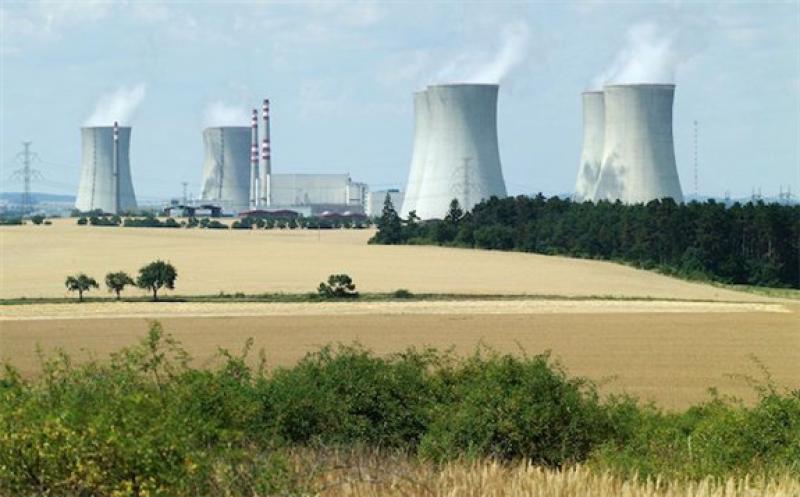Czech power company CEZ on 25 March submitted an application to the State Office for Nuclear Safety (SÚJB) for permission to construct new nuclear units at the Dukovany site.

CEZ has completed five years of preparatory work and is ready for the licensing process under the Atomic Act, the company said in a statement.
The application was submitted by EDU II, a subsidiary of CEZ. The permit documentation comprised some 1600 pages and involved more than 30 experts from CEZ and other institutions, including the Research Institute of Water Management, Masaryk University and ÚJV Rež.
The application mainly describes and evaluate the site characteristics. It examines the natural conditions, the possible impact of the operation on the environment and the future decommissioning of the power plant.
Experts dug more than 170 geological wells at the site to determine the condition of the subsoil with a total length of more than four kilometres. They also drilled 30 wells up to 150 metres deep to monitor groundwater.
“The subject of the application is the placement of two nuclear facilities, each with a single pressurised water reactor of electrical output up to 1200MWe. This procedure [takes into account] the energy and climate objectives of the Czech Republic and only [in the future] will it be decided to build one or two power block,” CEZ said.
CEZ Board chairman and CEO Daniel Beneš noted:
“As with environmental impact assessment, our goal in licensing is to maximise openness and transparency. That is why we are also publishing, for example, the entire Initial Safety Report and the public will have free access to this key document.”
The process is still at an early stage. It is not yet clear how the contracts between the state and CEZ will be drawn up to provide guarantees to CEZ and minority shareholders.
Currently, the Czech Republic has four nuclear units at Dukovany, each with a capacity of 510MWe and two at the Temelín of 1055MWe.
Dukovany accounts for a fifth of the electricity consumption in the country. The first unit at Dukovany began operation in 1985. The units have a 30-year design lifetime, but CEZ plans to keep them operating for 60 years.
Construction of a new nuclear plant is a long-term project and building is not expected to start for ten years.
Minister of Industry Karel Havlicek told reporters in February that by the end of 2022 the supplier should be selected and a building permit issued by 2029 for operation in 2036.
CEZ has previously said that the new unit could cost up to CZK 160 billion ($6.5bn). Companies from Russia, China, South Korea, Japan, France and the USA have shown preliminary interest in participating in the contract competition.
Czech nuclear plants adapt in response to coronavirus
Meanwhile, the Temelin and Dukovany nuclear plants have changed the shift system due to the spread of coronavirus infection and are preparing for tighter controls.
Power plants reduced shifts from six to four. "We are doing our utmost to continue producing safely and reliably. We are aware of how important it is now. That is why we have taken so many measures," said Bohdan Zronek, director of the nuclear power division and a CEZ board member.
Both plants can tighten measures within hours to isolate key workers. "They would live in selected neighbourhood facilities, separated from families and the outside environment," he said.
The plants would also reorganise planned outages. At the plants, the premises are disinfected, and some of the employees work from home. Employees' temperatures are monitored, work buses are disinfected, and all workers have masks.